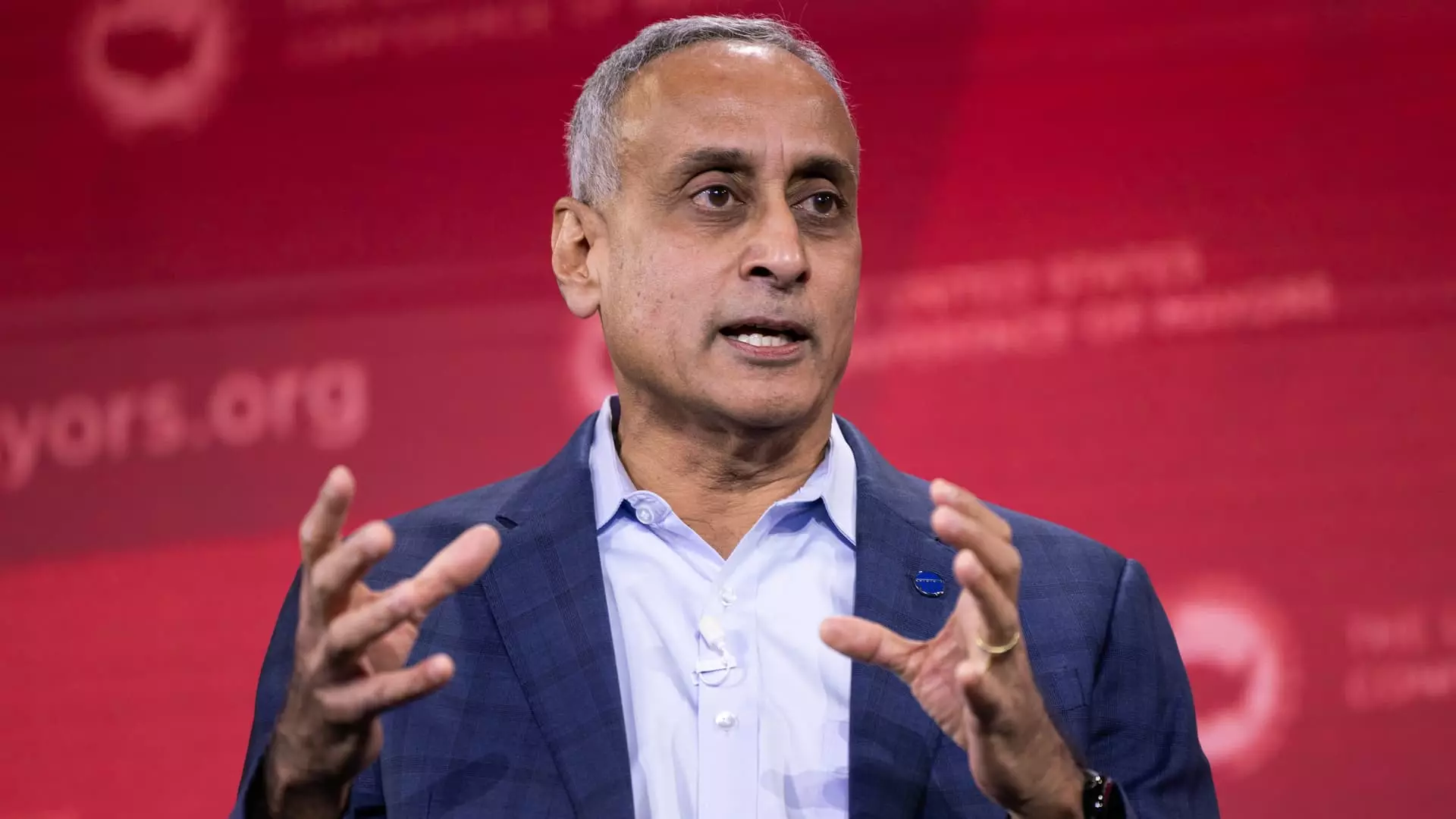In a strategic move reflective of the ever-evolving technology landscape, Google has appointed Nick Fox to take over the reins from Prabhakar Raghavan as the head of its search and advertisements division. This transition was announced by Alphabet CEO Sundar Pichai in a blog post, signaling a significant shift within the company’s leadership. Raghavan, who has been a key figure at Google for over a decade, will assume the role of chief technologist, where he will continue to collaborate closely with Pichai and offer technical leadership.
This transition comes at a critical time for Google as it navigates the complexities of increased competition in the artificial intelligence sector. Pichai highlighted Raghavan’s decision to pursue a new trajectory in his career as a strategic move for both the individual and the organization. He expressed confidence in Raghavan’s capabilities to foster a culture of technological excellence at Google, emphasizing the importance of innovation within the company.
The shift in leadership is not just a mere organizational change; it comes amid a broader restructuring strategy to bolster Google’s presence in the artificial intelligence arms race. With competitors rapidly advancing, Google recognizes the need for agile leadership and swift decision-making. This restructuring also coincides with the company confronting various antitrust lawsuits that challenge its core search and advertising business.
In this new landscape, Nick Fox steps into his role well-equipped. Having been a Google employee since 2003 and serving as vice president of product and design for the Google Assistant, Fox brings a wealth of experience and a proven track record within the company. His previous collaborations with Raghavan positioned him well to take the helm of the Knowledge and Information division, which encompasses essential products such as search and ads. Pichai’s remarks underscore Fox’s instrumental role in shaping AI strategies, indicating continuity coupled with fresh leadership perspectives.
Adding to the dynamism of this leadership change, Pichai announced another significant restructuring of teams. The group responsible for Google’s Gemini app, which focuses on direct-to-consumer AI products, will now be integrated under Google DeepMind, guided by AI head Demis Hassabis. This move is anticipated to enhance collaboration and feedback mechanisms, which are crucial for quick development and deployment of innovative AI models.
Moreover, the Assistant teams that focus on device integration and home experiences will transition to the Platforms and Devices unit. This realignment is part of an overarching goal to enhance product cohesion and market responsiveness. By situating these teams closer to their respective product interfaces, Google hopes to streamline its development processes.
The leadership transition at Google signals a pivotal moment for the tech giant, as it strives to ensure its competitiveness in an increasingly AI-centric market. With Prabhakar Raghavan shifting his focus while Nick Fox steps up to steer the next phase of Google’s search and ads division, the organization is positioning itself not just to participate but to thrive in the ongoing technological revolution. This evolution reflects Google’s commitment to innovation, adaptability, and leadership reshaping in the face of emerging technologies and market challenges.

